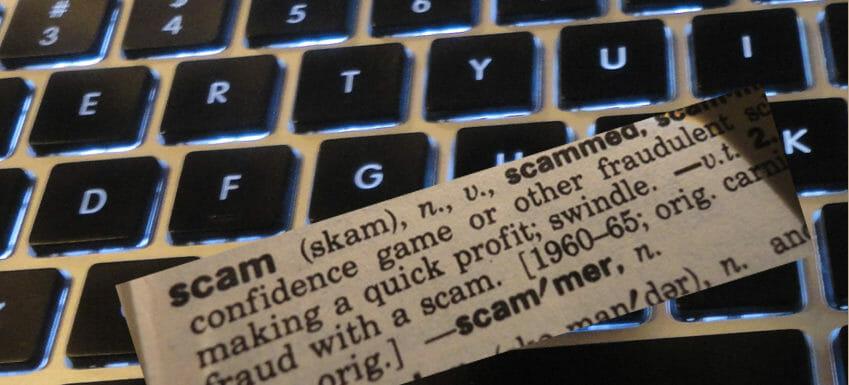Each year at this time, security companies begin compiling their lists of the biggest scams. On Nov. 12, computer security company McAfee released its list called, “The 12 Scams of Christmas.”
The release from McAfee included a brief statement of why these lists are important:
“The potential for identity theft increases as consumers share personal information across multiple devices that are often under protected,” said Michelle Dennedy, vice-president and chief privacy officer at McAfee. “Understanding criminals’ mindsets and being aware of how they try to take advantage of consumers can help ensure that we use our devices the way they were intended—to enhance our lives, not jeopardize them.”
- Mobile apps—no matter how official they may appear, it’s possible for criminals to use these apps to steal personal or financial data.
- Mobile SMS scams—Android is susceptible to a FakeInstaller attack that tricks the operating system into allowing it to send SMS messages to premium rate numbers.
- Holiday gift scams—those irresistible deals on the hottest items seen in advertisements may contain links to websites where malicious software can be installed on your computer.
- Travel scams—watch out for phony travel deals and wi-fi systems that advise you to install software before going online. That software may be from a hacker who’s just waiting for access to your computer.
- Dangerous E-greetings—legitimate-looking e-cards can contain links to malware or a virus.
- Deceptive online games—be wary of the source for downloaded games. McAfee’s warning said, “Many sites offering full-version downloads of Grand Theft Auto, for example, are often laden with malware, and integrated social media pages can expose gamers, too.
- Shipping notification scams—that email about a waiting package with a link is probably a scam with a link to merry old malware or a Christmas virus.
- Gift cards are a popular gift for the holidays. McAfee said, “…gift cards can be promoted via deceptive ads, especially on Facebook, Twitter, or other social sites, that claim to offer exclusive deals on gift cards or packages of cards and can lead consumers to purchase phony ones online.”
- SMiShing—this one involves those bank or credit card company messages asking you to confirm information for “security purposes”—these even appear in gift card messages.
- Fake charities—with holiday giving ramping up, so do the efforts of the scammers. Give to reputable sources or check out the charity with bbb.org.
- Dating scams—think you’ve found the perfect person to be with for the holidays? Niche dating services create many opportunities for scammers. The McAfee warning said, “Many messages sent from an online friend can include phishing scams, where the person accesses your personal information such as usernames, passwords, and credit card details.”
- Phone E-tailers—online shopping is popular not only with consumers, but also with online criminals who are just waiting for you to visit their website so they can steal your personal and financial information.
There you have it. Twelve scams to watch out for this holiday season. I’ve covered several of these before in detail and, for those, the title links to more details about that scam.


Christmas seems to always be the time for scammers and petty thieves. Make sure you do some simple home checks just to deter them! I saw a good post on the mummy files about it: http://www.themommy-files.com/2013/11/is-your-home-safe-for-winter/
Cameron | Chubb Locksmith
I’ve had a couple of these happen already and it’ll probably only get worse. Thanks for the comprehensive list.